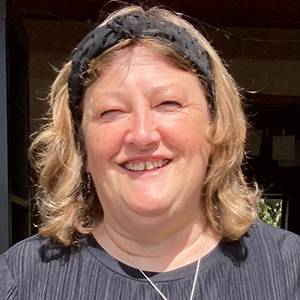Shining a spotlight on digital poverty

Analysis of the Digital experience insights survey highlights gaps in access to digital learning.

Turbo-charged by the Covid pandemic, education technology hugely expands the ways that students can engage with their courses of study. It’s also a necessary part of education in preparing learners for current and future workplaces. However that engagement requires access to equipment and resources. Our analysis of the Digital experience insights survey found that not everyone has the same level of access.
The survey asks students about how they use technology in their learning. It’s designed to help education providers to understand and improve their digital provision, but the aggregated results offer some fascinating wider insights.
Students’ responses to questions about access to technology, and how they use it to learn, seem to shed light on the issue of digital poverty - the “inability to interact with the online world fully, when, where and how an individual needs to.”
Asked about their access to devices used for learning, 94% of survey respondents said they use a laptop. Hardly anyone said they didn’t use any device, but we were concerned to find that 1% of our survey sample relied exclusively on their smartphone for learning purposes.
We asked if students were given, loaned, or helped to buy devices by their education provider. Only 9% of students confirmed that they were. A higher proportion of students with disabilities said they’d had help in this regard, but even that figure was only 20%.
Our questions about problems with digital learning give some of the clearest indications of digital poverty. Just over a third of students said that they struggled with cost of mobile data. International students were more likely to say they were struggling than UK students, and Black and Asian students were more likely than White students to agree this was a problem.
36% of students said that they did not have a private space in which to work, and, worryingly, 19% said they did not have a safe area to work.
Despite 94% of students having access to a laptop, 27% of respondents said that they did not have a suitable device for their educational work. This suggests that many students are likely using technology that is simply not up to the job in hand.
Not having a suitable device is another area where Black and Asian students are more likely to report a problem than white students.
Of course, having the right device and data connections is only a start. To make the best use of these resources requires skills which have to be learned. The survey asks various questions about the digital training and support that students are offered, and whether they take those opportunities.
Less than half of our survey respondents said that they had been offered support or training for basic IT skills or learning online. Even fewer reported being supported in the use of specialist software, data analysis, or coding.
Less than two fifths of students agreed that they were given opportunities to develop skills for their future careers. Interestingly, in this area Black and Asian students were more likely to report receiving support than White students.
Free text survey responses highlighted both access to hardware and training on software as issues that equally pose a risk to everyone benefiting from the same quality of education.
Our spotlight report, based on the 2022/23 Digital experience insights survey, includes examples of how universities and colleges can tackle digital poverty and make digital learning an equitable activity. Most of these start from the same point – an awareness that students without access to technologies feel disadvantaged in terms of how they participate, the grades they are able to achieve, and how well they feel prepared for the workplace.
The survey for 2023/24 closed on 26 April 2024. This included new questions about travel costs, use of campus facilities to save money, and paid work taken on to help with expenses. Check back on our Digital insights website in September for the results of that survey and new insights into students and the cost of living.
About the authors

I work in the business intelligence unit at Jisc, primarily on the digital experience insights surveys for students, academic staff and professional services staff. The focus is on supporting members across further and higher education to enrich their student experiences by providing powerful data to inform strategic planning and investment.